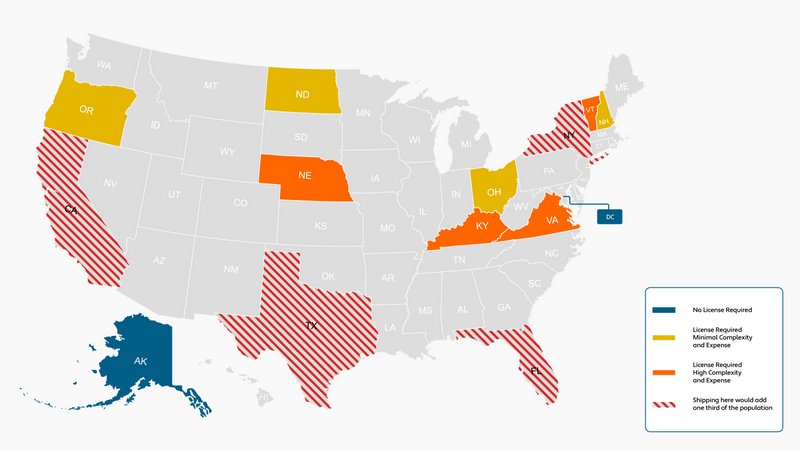
The craft beer revolution didn’t happen in the aisle of a grocery store, or on the pages of a catalogue. For much of America, it happened in a taproom or brewpub.
A Nielsen study in Dec. 2018 noted the variety of reasons for the brewpub’s growing appeal. So-called “experiential drinking venues” began to attract customers with knowledgeable staff, live events, and the opportunity to sample a variety of flavors and flights. The Atlantic called it “the strangest, happiest economic story in America.”
Then the novel coronavirus swept the globe. Suddenly, the idea of experiential venues was no longer practical. The beer industry needed to adapt to a new wave of government restrictions on public gatherings. An economic success story took a dramatic turn. How can these industries move forward?
The direct-to-consumer sales model, which has served wine brands so well for so long, is a logical first step. Here are five things every beer brand needs on tap for direct-to-consumer (DTC) sales:
1. There’s some legal red tape
According to the alcohol industry clearinghouse Avalara, direct-to-consumer shipping is allowed by Washington D.C. and ten different states: Alaska, Kentucky, Nebraska, Nevada, New Hampshire, North Dakota, Ohio, Oregon, Vermont and Virginia. Some Alaskan cities have made their own “dry” laws. Kentucky only recently lifted its ban on DTC beer shipping, so be sure to read the fine print of its new law first.
Kentucky’s law, which passed in April, offers hope for the short- and long-term future of DTC beer shipping. It could be the first of many (hopefully 40) dominos to fall. Even in states that have relaxed their mass-gathering restrictions, beer drinkers who are wary of contracting the coronavirus aren’t itching to go out in public. The demand for a safer, stay-at-home beer delivery option has never been higher.
Craft Brewing Business detailed pros and cons of the top online beer sales platforms that are helping breweries get up to speed.
2. Some beer drinkers (but not all) are merely looking for replenishment
OK. Your warehouse is stocked. Your shipping plan is in order. Your legal permits are in place. Your website has a place for consumers to enter their mailing address and pay for their first crate. Good to go, right?
Not quite. Marketing your DTC product is essential to long-term success. Some drinkers are merely focused on practical concerns―namely, running out of their go-to beer. These are the customers you want to encourage to sign up for a monthly, bi-monthly or even a weekly shipment plan. Offering a discount on their recurring purchase fosters long-term loyalty. Ojai Valley Brewery’s build-your-own case plan is a perfect example.
3. Some drinkers value “exclusive access”
If you have a beer that you want customers to save for a special occasion, the idea of constant replenishment won’t do. “Limited release” offerings that promise “exclusive access” heighten the sense of occasion.
Make a direct appeal to customers who value exclusivity, and having access to something before the general public. The Vista Barrel Club does a good job distilling this idea to its core.
4. Some drinkers don’t know what they want!
Even more than brick-and-mortar brewpubs, the internet is great for stumbling upon cool new products. You can’t always assume customers come to your website knowing what they want in a beer.
Enter the curated subscription model, which targets consumers who rely on the producer’s expertise to customize delivery of specific products to their liking. Maybe your target customer is short on time and doesn’t know his own tastes as well as an expert in the field. Libertine Brewing’s bottle club doesn’t rely on exclusivity or replenishment, just a unique product to try and a discount for recurring subscribers.
5. Know which kind of DTC model appeals to your customer base.
This is essential for making the most of your beer’s DTC offerings. The different subscription models above (replenishment, access, curated) appeal to different consumers. This taps into what market researchers call psychographics. Not every producer will have a beer for each psychographic, but many will. It’s up to you to know your customer!
Chris Towt is a veteran vintner and founder of VineSpring


Leave a Reply
You must be logged in to post a comment.